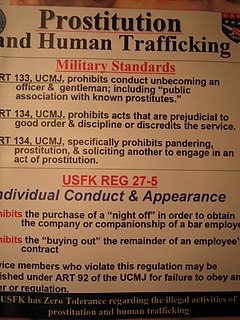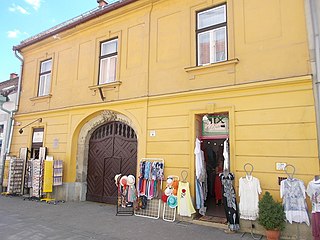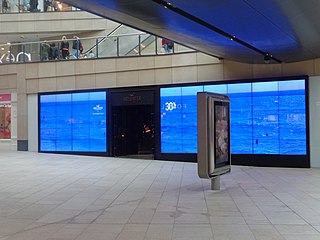 W
WAn arabber is a street vendor (hawker) selling fruits and vegetables from a colorful, horse-drawn cart. Once a common sight in American East Coast cities, only a handful of arabbers still walk the streets of Baltimore. They rely on street cries to attract the attention of their customers.
 W
WThe automobile salesperson is one of many sales professions. The automobile salesman is a retail salesperson, who sells new or used cars. Unlike traditional retail sales, car sales are sometimes negotiable. Salesmen are employed by new car dealerships or used car dealerships.
 W
WA bargirl is a woman who is paid to entertain patrons in a bar, either individually or, in some cases, as a performer. The exact nature of the entertainment varies widely from place to place; depending on the venue this can be individual entertainment ranging from light conversation to sexual services, or more public entertainment in the form of go-go dancing or striptease. Variants on the term include "B-girl", "hostess", "juicy girl", and "guest relations officer".
 W
WBusiness brokers, also called business transfer agents, or intermediaries, assist buyers and sellers of privately held businesses in the buying and selling process. They typically estimate the value of the business; advertise it for sale with or without disclosing its identity; handle the initial potential buyer interviews, discussions, and negotiations with prospective buyers; facilitate the progress of the due diligence investigation and generally assist with the business sale.
 W
WA retail cashier or simply a cashier is a person who handles the cash register at various locations such as the point of sale in a retail store. The most common use of the title is in the retail industry, but this job title is also used in the context of accountancy for the person responsible for receiving and disbursing money or within branch banking in the United Kingdom for the job known in the United States as a bank teller.
 W
WIn the Middle Ages or 16th and 17th centuries, a cloth merchant was one who owned or ran a cloth manufacturing or wholesale import or export business. A cloth merchant might additionally own a number of draper's shops. Cloth was extremely expensive and cloth merchants were often very wealthy. A number of Europe's leading banking dynasties such as Medici and Berenberg built their original fortunes as cloth merchants.
 W
WA clothes shop or clothes store is any shop which sells items of ready-made clothing. A small shop which sells expensive or designer clothing may be called a boutique. A shop that sells clothes for a narrowly-restricted market such as school uniforms or outdoor sports may be called an outfitter.
 W
WColportage is the distribution of publications, books, and religious tracts by carriers called "colporteurs" or "colporters". The term does not necessarily refer to religious book peddling.
 W
WDraper was originally a term for a retailer or wholesaler of cloth that was mainly for clothing. A draper may additionally operate as a cloth merchant or a haberdasher.
 W
WAn estate agent is a person or business that arranges the selling, renting, or management of properties and other buildings. An agent that specialises in renting is often called a letting or management agent. Estate agents are mainly engaged in the marketing of property available for sale, and a solicitor or licensed conveyancer is used to prepare the legal documents. In Scotland, however, many solicitors also act as estate agents, a practice that is rare in England and Wales.
 W
WA flower seller, normally a woman, traditionally sells flowers on the street. Often the flowers are carried in a basket, for example. The subject matter has been a favorite of artists. The profession has mostly died out in countries like the United Kingdom, but still exists in others such as India.
 W
WA funeral director, also known as an undertaker or mortician, is a professional involved in the business of funeral rites. These tasks often entail the embalming and burial or cremation of the dead, as well as the arrangements for the funeral ceremony. Funeral directors may at times be asked to perform tasks such as dressing, casketing, and cossetting. A funeral director may work at a funeral home or be an independent employee.
 W
WA greengrocer is a person who owns or operates a shop selling primarily fruit and vegetables. The term may also be used to refer to a shop selling primarily produce. It is used predominantly in the United Kingdom and Australia.
 W
WA grocery store, grocery or grocery shop (UK) is a store that primarily retails a general range of food products, which may be fresh or packaged. In everyday U.S. usage, however, "grocery store" is a synonym for supermarket, and is not used to refer to other types of stores that sell groceries. In the UK, shops that sell food are distinguished as grocers or grocery shops, though in everyday use, people usually use either the term "supermarket" or, for a smaller type of store that sells groceries, a "corner shop" or "convenience shop".
 W
WIn British English, a haberdasher is a business or person who sells small articles for sewing, dressmaking and knitting, such as buttons, ribbons, and zips; in the United States, the term refers instead to a retailer who sells men's clothing, including suits, shirts, and neckties.
 W
WA hawker is a vendor of merchandise that can be easily transported; the term is roughly synonymous with costermonger or peddler. In most places where the term is used, a hawker sells inexpensive goods, handicrafts, or food items. Whether stationary or mobile, hawkers often advertise by loud street cries or chants, and conduct banter with customers, to attract attention and enhance sales.
 W
WA huckster is anyone who sells something or serves biased interests, using pushy or showy tactics. Historically, the term meant any type of peddler or vendor, but over time it has assumed pejorative connotations.
 W
WIronmongery originally referred, first, to the manufacture of iron goods and, second, to the place of sale of such items for domestic rather than industrial use. In both contexts, the term has expanded to include items made of steel, aluminium, brass, or other metals, as well as plastics.
 W
WA letting agent is a facilitator through which an agreement is made between a landlord and tenant for the rental of a residential property. This is commonly used in countries using British English, including countries of the Commonwealth. In the UK, Australia, and New Zealand, the agreement between landlord and tenant is normally formalised by the signing of a tenancy agreement. A letting agency will normally charge a commission for their services, usually a percentage of the annual rent.
 W
WNAEA Propertymark is a membership organisation for estate agents (called real estate brokers in the US). It is based in and covers the UK. It is the UK's leading professional body for estate agents. Its members practice across all aspects of property in the UK, including residential and commercial sales and letting, property management, business transfer, auctioneering and land.
 W
WA peddler, in British English pedlar, also known as a chapman, packman, cheapjack, hawker, higler, huckster, (coster)monger, colporteur or solicitor, is a door-to-door and/or traveling vendor of goods.
 W
WSales are activities related to selling or the number of goods sold in a given targeted time period. The delivery of a service for a cost is also considered a sale.
 W
WA tobacconist, also called a tobacco shop, a "tobacconist's shop" or a smoke shop, is a retailer of tobacco products in various forms and the related accoutrements, such as pipes, lighters, matches, pipe cleaners, pipe tampers. More specialized retailers might sell: ashtrays, humidification devices, hygrometers, humidors, cigar cutters, and more. Books and magazines, especially ones related to tobacco are commonly offered. Items irrelevant to tobacco such as puzzles, games, figurines, hip flasks, walking sticks, and confectionery are sometimes sold. In the United States, a tobacconist shop is traditionally represented by a wooden Indian positioned nearby. Most retailers of tobacco sell other types of product; today supermarkets, in many countries with a special counter, are usually the main sellers of the common brands of cigarette. In the United Kingdom, a common combination in small corner shops has been a newsagent selling newspapers and magazines, as well as confectionery and tobacco. In UK retailing this sector is referred to as "CONTOB".